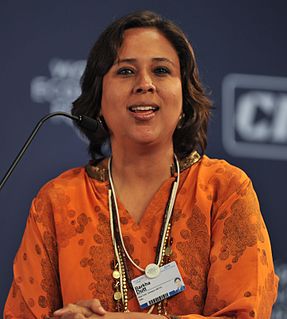A Quote by Gerhard Richter
Not the victims of any specific ideology of the left or of the right, but of the ideological posture as such. This has to do with the everlasting human dilemma in general: to work for a revolution and fail.
Quote Topics
Related Quotes
Whatseems to take place outside ideology (to be precise, in the street), in reality takes place in ideology. What really takes place in ideology seems therefore to take place outside it. That is why those who are in ideology believe themselves by definition outside ideology: one of the effects of ideology is the practical denegation of the ideological character of ideology by ideology: ideology never says, 'I am ideological.'
Ideology to me is fundamentally is an elite pursuit. I mean most people are just not all that interested in single payer vs. government pay ... they're very interested in you know, 'Wait, are there going to be death panels.' But that's all a creation of this like hothouse media and politics environment. So maybe if humanism is an ideology then it's ideological, but I don't see it as being on the traditional left/right spectrum.
No ideology can help to create a new world or a new mind or a new human being -- because ideological orientation itself is the root cause of all the conflicts and all the miseries. Thought creates boundaries, thought creates divisions and thought creates prejudices; thought itself cannot bridge them. That's why all ideologies fail. Now man must learn to live without ideologies religious, political or otherwise. When the mind is not tethered to any ideology, it is free to move to new understandings. And in that freedom flowers all that is good and all that is beautiful.
Every work of art (unless it is a psuedo-intellectualist work, a work already comprised in some ideology that it merely illustrates, as with Brecht) is outside ideology, is not reducible to ideology. Ideology circumscribes without penetrating it. The absence of ideology in a work does not mean an absence of ideas; on the contrary it fertilizes them.
This, then, is the truth of the discourse of universal human rights: the Wall separating those covered by the umbrella of Human Rights and those excluded from its protective cover. Any reference to universal human rights as an 'unfinished project' to be gradually extended to all people is here a vain ideological chimera - and, faced with this prospect, do we, in the West, have any right to condemn the excluded when they use any means, inclusive of terror, to fight their exclusion?
Rebellions tend to be negative, to denounce and expose the enemy without providing a positive vision of a new future...A revolution is not just for the purpose of correcting past injustices, a revolution involves a projection of man/woman into the future...It begins with projecting the notion of a more human human being, i.e. a human being who is more advanced in the specific qualities which only human beings have - creativity, consciousness and self-consciousness, a sense of political and social responsibility.
The notion of human right builds on our shared humanity. These rights are not derived from the citizenship of any country, or the membership of any nation, but are presumed to be claims or entitlements of every human being. They differ, therefore, from constitutionally created rights guaranteed for specific people.







































